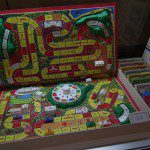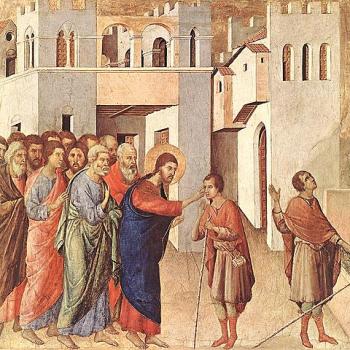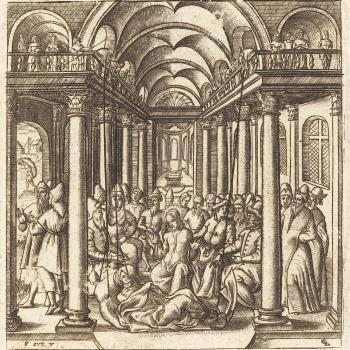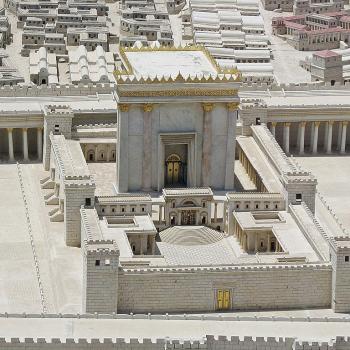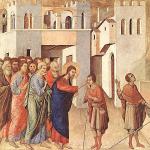![King David playing the harp by Gerard van Honthorst [Public domain], via Wikimedia Commons](https://wp-media.patheos.com/blogs/sites/637/2017/05/Gerard_van_Honthorst_-_King_David_Playing_the_Harp_-_Google_Art_Project-240x300.jpg)
Now the Spirit of the LORD departed from Saul, and an evil spirit from the LORD tormented him. And Saul’s servants said to him, “Behold now, an evil spirit from God is tormenting you. Let our lord now command your servants, who are before you, to seek out a man who is skilful in playing the lyre; and when the evil spirit from God is upon you, he will play it, and you will be well.” So Saul said to his servants, “Provide for me a man who can play well, and bring him to me.” One of the young men answered, “Behold, I have seen a son of Jesse the Bethlehemite, who is skilful in playing, a man of valor, a man of war, prudent in speech, and a man of good presence; and the LORD is with him.” Therefore Saul sent messengers to Jesse, and said, “Send me David your son, who is with the sheep.” And Jesse took an ass laden with bread, and a skin of wine and a kid, and sent them by David his son to Saul. And David came to Saul, and entered his service. And Saul loved him greatly, and he became his armor-bearer. And Saul sent to Jesse, saying, “Let David remain in my service, for he has found favor in my sight.” And whenever the evil spirit from God was upon Saul, David took the lyre and played it with his hand; so Saul was refreshed, and was well, and the evil spirit departed from him. (1 Sam. 16:14-23 RSV).
Moreover, David’s songs, collected together in the Psalms, provide hymns for the new, reformed cult developing under him in Jerusalem: the Temple would be built by his son, but the formulation and plan of its building came from David as a part of his centralization of Israelite religion. The songs of David were sung, by David and then by others, in front of the Ark of the Covenant, as the means not only of worshiping God but also for spreading the theology which served as the foundation for the developing Temple-Cult in Jerusalem:
And they carried the ark of God upon a new cart, and brought it out of the house of Abinadab which was on the hill; and Uzzah and Ahio, the sons of Abinadab, were driving the new cart with the ark of God; and Ahio went before the ark. And David and all the house of Israel were making merry before the LORD with all their might, with songs and lyres and harps and tambourines and castanets and cymbals (2 Sam. 6:3-5 RSV).
The presence of the Lord, with the Ark of the Covenant, and later in the Temple itself, would be served by the songs David established, so that music would forever be connected with the worship of the one true God:
These are the men whom David put in charge of the service of song in the house of the LORD, after the ark rested there. They ministered with song before the tabernacle of the tent of meeting, until Solomon had built the house of the LORD in Jerusalem; and they performed their service in due order (1 Chr. 6:31-2 RSV).
In his songs, David developed a theology which he understood would have to be put to popular use through ritual language in song; this was the means by which he could set up the proclamation of his religious reform and the insight he achieved as an anointed one of God. He combined the declaration of the one God, the God of Israel, as the God over all, with mystical indications of the fate of humanity, not only in the world, but also in death. God was to be seen as everywhere present, and so even in death, in the pit of hades, God could be found: “If I ascend to heaven, thou art there! If I make my bed in Sheol, thou art there!” (Ps. 139: 8 RSV). David’s victories over his enemies allowed him to portray the glory of the Lord: “And David spoke to the LORD the words of this song on the day when the LORD delivered him from the hand of all his enemies, and from the hand of Saul” (2 Sam. 22:1 RSV). Through such engagement with God, David and his music was lifted up, so that he would become one of God’s prophets. He would speak on behalf of God for the people but he would also help prepare Israel, and the whole world, for the coming of the messiah.



